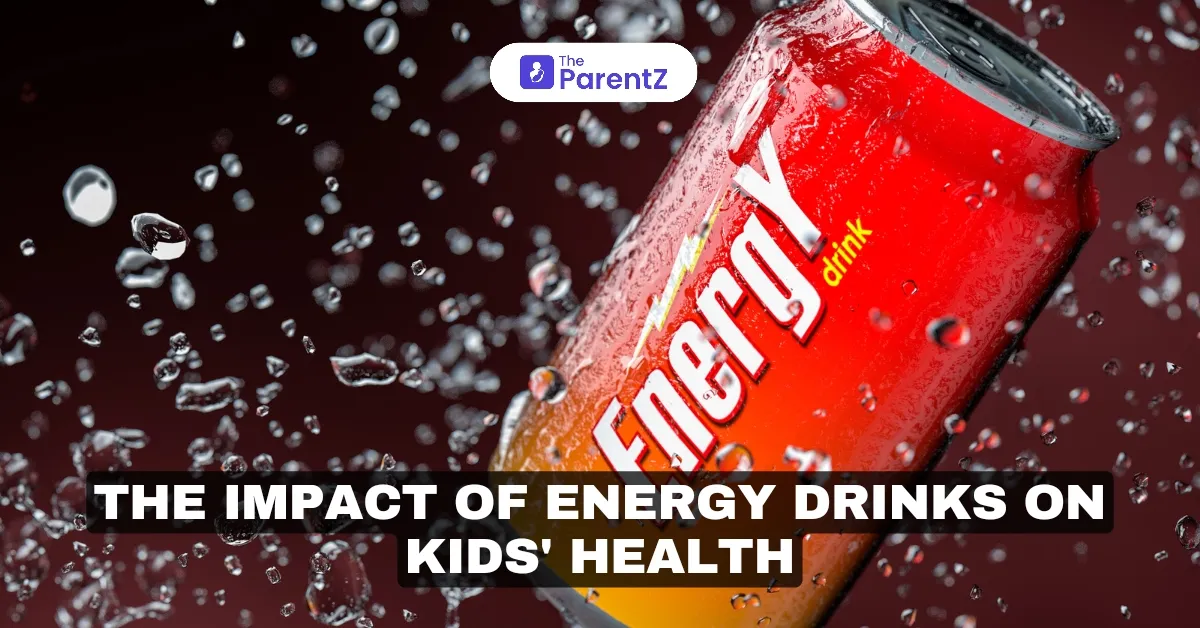The growing popularity of energy drinks among children and adolescents raises significant health concerns that parents must understand. These beverages, often marketed as quick fixes for fatigue and performance enhancers, can pose serious risks to young consumers. Therefore, it is time to explore the hidden dangers of energy drinks while also addressing common myths and truths that every parent should be aware of.
Understanding Energy Drinks and Health Risks
Energy drinks are beverages that typically contain high levels of caffeine, added sugars, and various other stimulants such as taurine, guarana, and ginseng. A single 16-ounce energy drink can contain anywhere from 70 to 240 mg of caffeine, significantly more than a standard cup of coffee, which averages around 100 mg. The American Academy of Pediatrics has stated that these stimulants have no place in the diets of children and adolescents due to their potential adverse effects on developing bodies.
Common Ingredients and Their Effects
- Caffeine: The primary stimulant in energy drinks can lead to increased heart rate, high BP, and anxiety. Regular consumption may result in caffeine dependency, with withdrawal symptoms including headaches and irritability.
- Sugar: Many energy drinks contain excessive amounts of sugar—up to 62 grams per serving. This far exceeds the American Heart Association's recommendation for daily sugar intake for children, which is about 25 grams. High sugar consumption leads to obesity, Type 2 diabetes, and dental problems.
- Taurine and Guarana: These ingredients are often included for their purported energy-boosting properties. However, their safety and efficacy in children are not well-established, raising concerns about their long-term effects on health.
Myths vs. Truths
Myth 1: Energy drinks are just like sports drinks.
Truth: While both types of beverages may be consumed for hydration or energy, sports drinks are designed primarily to replenish electrolytes lost during physical activity and do not typically contain caffeine. Energy drinks, due to their diuretic effects, can lead to dehydration.
Myth 2: Energy drinks can help improve academic performance.
Truth: While some students believe that energy drinks enhance focus during study sessions, the reality is that the high caffeine content can disrupt sleep patterns and lead to increased anxiety levels, ultimately impairing cognitive function rather than enhancing it.
Health Risks Associated with Energy Drinks
The health risks that come with energy drink consumption among youth are problematic:
- Cardiovascular Issues: Studies have linked energy drink consumption to serious heart problems such as irregular heartbeat and even heart failure. In fact, according to the CDC, in 2011, nearly 1,500 adolescents aged 12 to 17 were treated in emergency rooms for energy drink-related issues.
- Mental Health Effects: Anxiety, insomnia, and mood swings are common side effects reported by young consumers of these beverages. The stimulants can exacerbate pre-existing mental health conditions or contribute to new ones.
- Obesity and Diabetes: Regular consumption of high-sugar energy drinks increases the risk of obesity and related conditions like Type 2 diabetes due to excessive calorie intake without nutritional benefits.
Ingredients Labels: What Parents Should Know
Most parents may not fully understand the implications of the ingredients listed on energy drink labels. Here are some key points:
- Caffeine Content: Many brands do not clearly label the total caffeine content, making it difficult for parents to gauge how much their child is consuming. This lack of transparency may lead to unintentional overdoses.
- Hidden Sugars: Components like high fructose corn syrup or cane sugar may be listed under different names, obscuring the true sugar content from consumers who may not read labels carefully.
- Unregulated Additives: Some ingredients found in energy drinks have not been thoroughly studied for safety in children. For example, glucuronolactone is often included without clear evidence of its effects on young consumers.
Conclusion
As parents navigate the complexities of their children's dietary choices, understanding the hidden dangers of energy drinks is crucial. With their high levels of caffeine and sugar combined with unregulated additives, these beverages pose noteworthy health risks that far outweigh any perceived advantages. Educating children about these dangers and encouraging healthier alternatives—like water or natural fruit juices—can help mitigate these risks.





Be the first one to comment on this story.